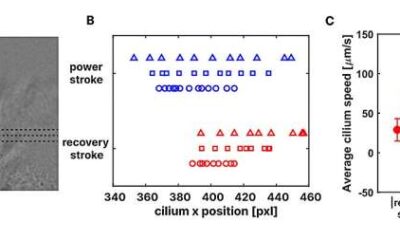Science
Science Unravels Complex Origins of Hitler’s Malevolence

Recent research has delved into the complex interplay of genetics and psychological factors that may explain the malevolence of Adolf Hitler. While scientific insights provide a clearer understanding of his physical and psychological traits, they cannot fully account for the historical implications of his actions.
The exploration of Hitler’s nature connects to broader discussions about the origins of evil. A study conducted by the University of Cambridge has highlighted potential genetic predispositions that may have influenced his behavior. This research indicates that certain psychological flaws, possibly rooted in genetics, could have contributed to his tyrannical rule during the 20th century.
However, attributing Hitler’s actions solely to genetic factors oversimplifies a deeply intricate historical narrative. The impact of the socio-political context in which he operated is crucial to understanding the full scope of his malevolence. The rise of Nazi ideology, the aftermath of World War I, and the economic turmoil in Germany created an environment ripe for Hitler’s extreme beliefs to take root.
Understanding Hitler’s Psychological Profile
The findings from the University of Cambridge suggest that Hitler’s psychological profile may have included traits such as paranoia, narcissism, and a profound need for control. These characteristics align with common traits found in authoritarian leaders.
Analysis of historical records illuminates how his upbringing and early experiences shaped his worldview. His childhood in Austria, characterized by a strict father and a doting mother, likely influenced his emotional development. The combination of psychological factors and environmental influences contributed to a mindset that would later justify horrific actions, including the Holocaust.
Despite these insights, researchers caution against reductionist explanations. Historical events are the result of multifaceted interactions among individuals, societies, and circumstances. Understanding the nuances of Hitler’s character requires a holistic approach that incorporates historical, social, and psychological perspectives.
The Broader Implications
The implications of understanding Hitler’s psychological and genetic factors extend beyond historical analysis. It compels society to reflect on the nature of evil and the conditions that allow tyrants to rise to power. Learning from history is essential to preventing similar atrocities in the future.
In light of the ongoing discussions surrounding authoritarianism worldwide, the lessons drawn from Hitler’s life remain relevant. The exploration of how personal flaws can be exacerbated by societal conditions underscores the importance of vigilance against oppressive ideologies.
As researchers continue to investigate the origins of such malevolence, it is vital to remember that history is shaped not just by individuals but by the collective actions and beliefs of societies. The complexities of human behavior and the factors that drive individuals toward inhumane actions warrant deeper examination, as they hold the key to understanding and mitigating the risks of future conflicts.
Ultimately, while science may elucidate some aspects of Adolf Hitler’s character, the true understanding lies in a comprehensive analysis that encompasses all facets of history, psychology, and society.
-

 Entertainment2 months ago
Entertainment2 months agoAnn Ming Reflects on ITV’s ‘I Fought the Law’ Drama
-

 Entertainment3 months ago
Entertainment3 months agoKate Garraway Sells £2 Million Home Amid Financial Struggles
-

 Health2 months ago
Health2 months agoKatie Price Faces New Health Concerns After Cancer Symptoms Resurface
-

 Entertainment2 months ago
Entertainment2 months agoCoronation Street’s Carl Webster Faces Trouble with New Affairs
-

 Entertainment2 months ago
Entertainment2 months agoWhere is Tinder Swindler Simon Leviev? Latest Updates Revealed
-

 Entertainment3 months ago
Entertainment3 months agoKim Cattrall Posts Cryptic Message After HBO’s Sequel Cancellation
-

 Science4 weeks ago
Science4 weeks agoBrian Cox Addresses Claims of Alien Probe in 3I/ATLAS Discovery
-

 Entertainment3 months ago
Entertainment3 months agoMarkiplier Addresses AI Controversy During Livestream Response
-

 Entertainment2 months ago
Entertainment2 months agoOlivia Attwood Opens Up About Fallout with Former Best Friend
-

 Entertainment3 months ago
Entertainment3 months agoMasterChef Faces Turmoil as Tom Kerridge Withdraws from Hosting Role
-

 Entertainment4 months ago
Entertainment4 months agoSpeculation Surrounds Home and Away as Cast Departures Mount
-

 World2 months ago
World2 months agoCole Palmer’s Mysterious Message to Kobbie Mainoo Sparks Speculation



















